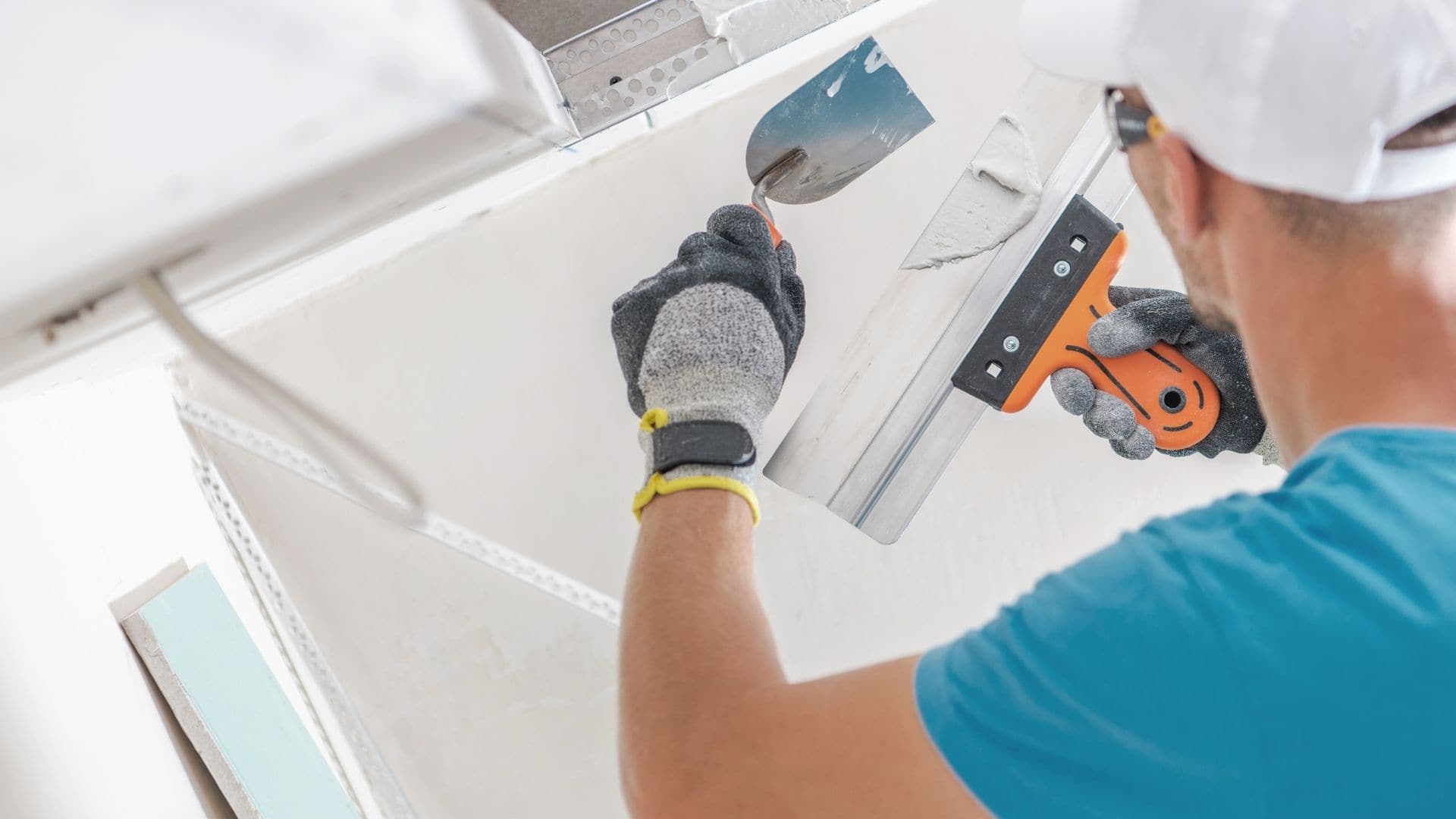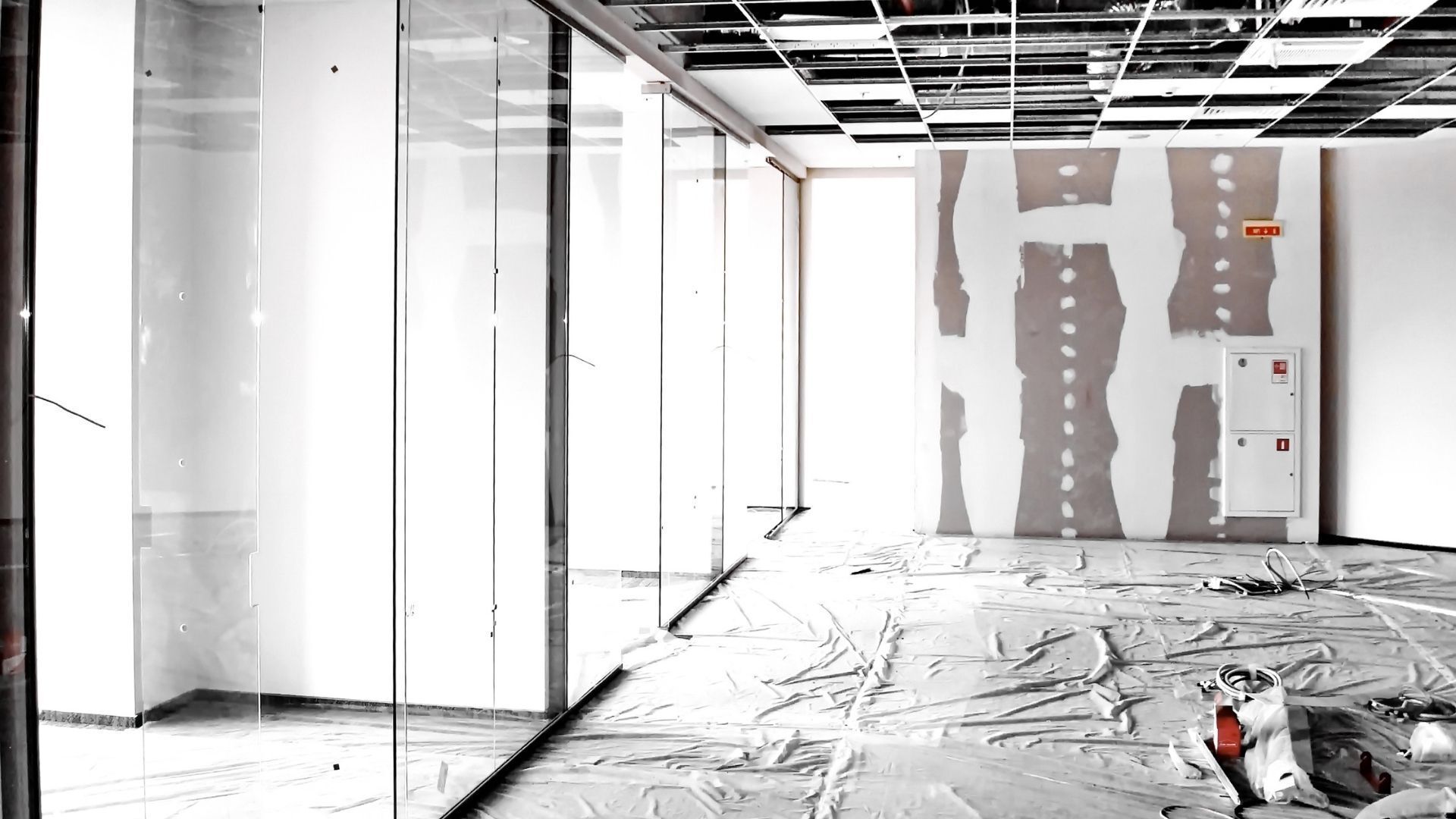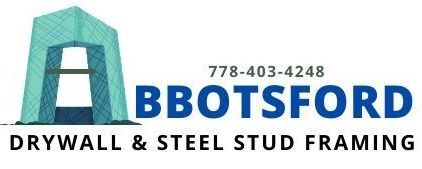Abbotsford Drywall and Steel Stud Framing
Ten Must-Have Tools for Successful Commercial Drywall Installation
Installing, smoothing, and completing drywall can be challenging, requiring speed and accuracy. As drywall repair contractors, your responsibility is to offer a level of service that surpasses what do-it-yourself drywallers can achieve.
Like a seasoned pro, you'll require various
tools and accessories to perform hanging, finishing, and taping tasks. But what specific tools and accessories are necessary? If you're unsure about the essentials for your drywall business, keep reading. We've created a list of ten vital tools that every professional drywaller needs for effective installation.

1. Mud Pans
The first tool you need is a mud pan. It holds the joint compound as you move around the worksite. You can choose from different sizes. Go for a large pan to accommodate ample compound, ensuring you don't need frequent refills. At the same time, prioritize a lightweight option that you can comfortably carry throughout the project.
Aluminum pans are popular among drywallers due to their affordability and lightweight nature, making them a preferred choice for efficient and convenient drywall installation.
2. Sanding Sponges
Sanding sponges are indispensable tools essential for touch-ups. There are two main types of sanding sponges: abrasive and non-abrasive.
Abrasive sponges are equipped with rough and smooth sides, akin to the texture found on kitchen scrubbers. The rough side helps in efficiently removing imperfections and uneven surfaces, while the smooth side is ideal for achieving a polished finish.
On the other hand, non-abrasive sponges are completely smooth, lacking the rough texture of their abrasive counterparts. These sponges are particularly suitable for wet sanding, a common technique for smoothing out small or hard-to-reach areas on the drywall surface. Wet sanding helps minimize dust and allows for better control over the sanding process.
3. Sanding Poles and Sheets
Sanding poles and sheets are essential for achieving a smooth and even surface during drywall installation. These tools enable you to effectively sand high surfaces and easily access tight or hard-to-reach spots.
A sanding pole is attached to the sander, providing an extended handle to reach tall walls and ceilings without ladders or scaffoldings. This saves both time and effort during the sanding process. The pole's adjustable length feature further enhances its versatility, enabling you to customize it to suit different project requirements.
In addition to the sanding pole, you'll need sanding sheets to attach to the sander. Two main types of sanding sheets are coarse fibreglass mesh sheets and sandpaper sheets.
Coarse fibreglass mesh sheets are designed with small holes, allowing for efficient dust extraction and preventing clogging of the sanding surface. On the other hand, sandpaper sheets are ideal for fine sanding and achieving a smooth, polished finish. They come in various grits, with higher grit numbers indicating a finer sanding texture.
4. Utility Knife
A utility knife is an important tool for drywall removal in commercial projects. It helps you make precise and neat cuts. When choosing a utility knife, there are a few important things to consider.
First, pick a utility knife that doesn't have blades that can be snapped off. Snap-off blades are made for general use and will not be strong and durable enough for cutting drywall effectively. Choosing a utility knife with a fixed blade for cutting drywall is better.
Additionally, it's recommended to go for utility knives with strong blades that can be changed and secured in a handle. These knives provide more stability and strength, improving cutting control and accuracy. Being able to replace the blades ensures that you always have a sharp cutting edge, which is important for maintaining good cutting performance throughout your drywall installation projects.
5. Drywall Knives
Use specialized drywall knives, not putty knives, for spreading mud. Drywall knives have wider, thinner, and more flexible blades. Get a 4-inch or 6-inch knife for applying compound and taping and a 12-inch knife for feathering.
6. T-Square
Invest in a drywall T-square, which is longer than a regular square or straight edge. It has a 48-inch length, allowing you to cut the full width of a drywall sheet. The cross-end fits perfectly over the drywall edge for precise fitting.
7. Jab Saw
A jab saw, a drywall saw, is an important tool for cutting drywall in commercial projects. It's especially useful for making short, straight, rounded cuts in the drywall.
Jab saws have long blades with sharp tips and rough edges, making cutting through the drywall easy. The rough edges help the blade cut quickly and efficiently, while the sharp tip allows precise and controlled cutting.
A jab saw is a reliable tool on hand whether you need to cut holes for electrical outlets, shape the drywall to fit around obstructions or create rounded corners. It can handle different cutting tasks and is very versatile. This makes it a necessary tool for achieving accurate and neat cuts in commercial drywall installations.
8. Screws
Instead of nails, use drywall screws for hanging drywall. Choose between coarse-thread and fine-thread screws. Coarse-thread screws are easier to use, and most projects require 5/8-inch screws. Plan for around 32 screws per 4x8 drywall board.
9. Cordless Drill
To hang drywall, use a cordless drill instead of a hammer. It's faster and more effective. Cordless drills are more convenient than corded ones since you don't need to change outlets frequently or worry about tangled cords.
10. PPE
Before you start working:
- Wear personal protective equipment (PPE) for safety. Use a NIOSH/MSHA-approved dust mask to protect your lungs from dust while sanding.
- Wear construction goggles to shield your eyes from dust and chemicals.
- Have thick gloves to protect your hands from chemicals and sharp tools.

Hire Professional Drywall Repair Contractors for Your Drywall Needs
Hiring professional drywall repair contractors is a good idea when you need to fix your drywall. By hiring professionals, you can be sure that the repairs will be done to a high standard, making your walls look seamless and nice. They know how to check the damage, choose the right drywall patch methods, and do the repairs accurately.
